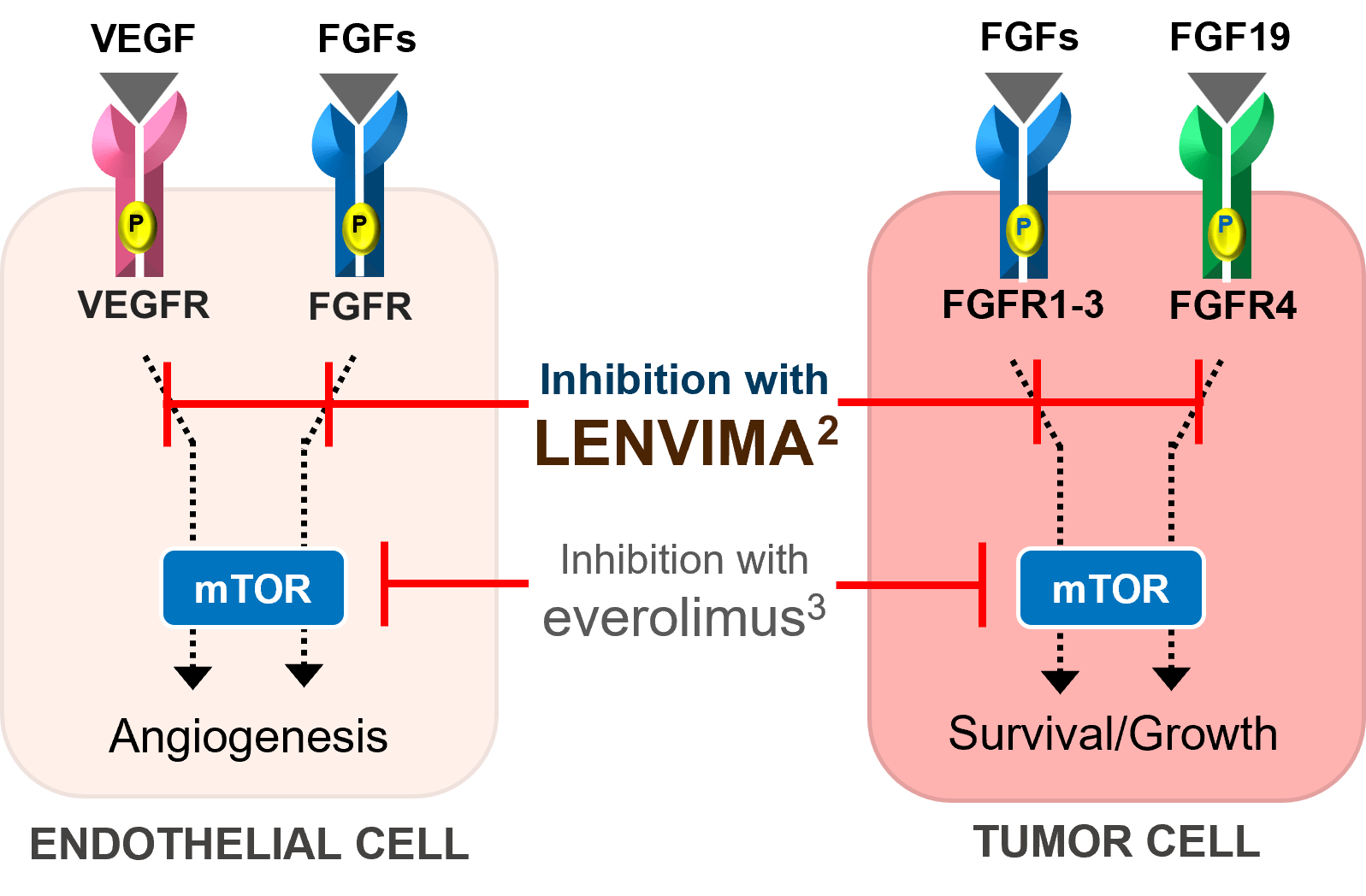LENVIMA® in combination with everolimus for the 2L treatment of advanced renal cell carcinoma.
Mechanism of Action (MOA) of LENVIMA + everolimus
LENVIMA in combination with everolimus is a TKI-mTOR in 2L aRCC1

- LENVIMA is a kinase inhibitor that inhibits the kinase activities of vascular endothelial growth factor receptors (VEGFR): VEGFR1 (FLT1), VEGFR2 (KDR), and VEGFR3 (FLT4)1
- LENVIMA inhibits other kinases (including FGFR1, 2, 3, and 4; PDGFRA, KIT, and RET) that have been implicated in pathogenic angiogenesis, tumor growth, and cancer progression, in addition to their normal cellular functions1
LENVIMA + everolimus inhibits multiple cellular steps (RTK and mTOR) involved in tumor cell survival and proliferation in addition to angiogenesis1
The combination of lenvatinib and everolimus showed increased anti-angiogenic and antitumor activity as demonstrated by decreases in:
- human endothelial cell proliferation
- tube formation
- both VEGF and FGF signaling in vitro
- tumor volume in mouse xenograft models of human renal cell cancer that were greater than those with either drug alone1
TKI=tyrosine kinase inhibitor; mTOR=mammalian target of rapamycin; aRCC=advanced renal cell carcinoma; VEGF=vascular endothelial growth factor; VEGFR=vascular endothelial growth factor receptor; FGF=fibroblast growth factor; FGFR=fibroblast growth factor receptor; FLT=Fms-related tyrosine kinase 1; KDR=kinase insert domain receptor; PDGFRA=platelet-derived growth factor receptor alpha; RET=rearranged during transfection; RTK=receptor tyrosine kinase.
